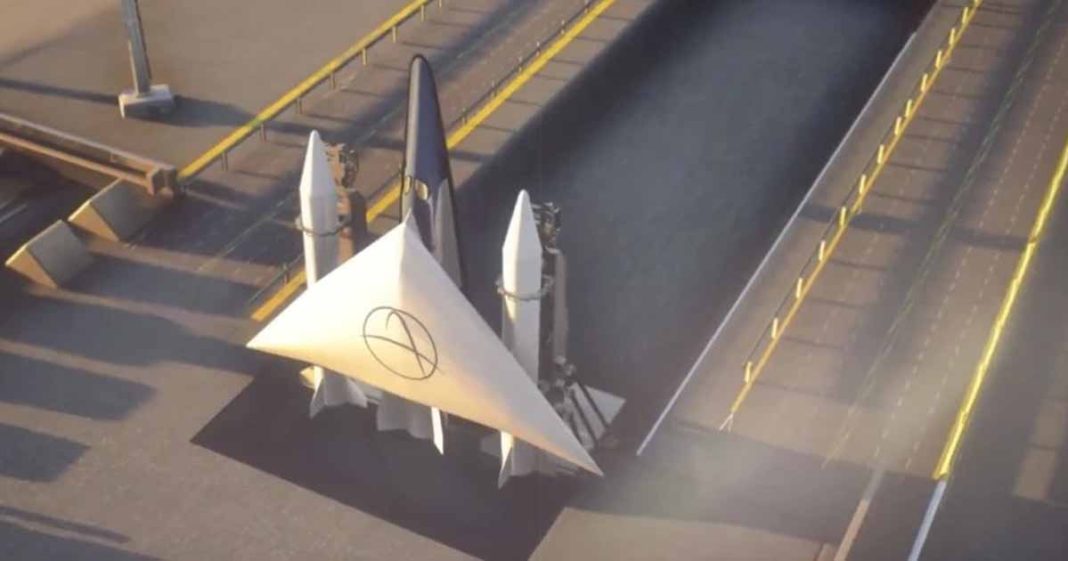The company Space Transportation, also known as Beijing Lingkong Tianxing Technology, told Chinese media it was developing “a winged rocket” for high-speed “point-to-point transportation,” which would be cheaper than using rockets that carry satellites and faster than traditional aircraft.
According to a presentation on the company’s website, the plane will take off vertically, detach itself from a glider wing with rocket boosters and, after making a suborbital trip, land vertically on three deployable legs.
The media quoted Space Transportation as saying that a flight from Beijing to New York would only take an hour.
Read more: In America, high-speed train travel is off track
A spokesperson told Chinese media that the winged rocket will have lower operational costs than “rockets carrying satellites and be faster than a traditional aircraft.” SpaceX introduced a similar concept in 2017 called “Earth to Earth,” which had been repurposed from its “BFR,” originally conceived to transport passengers to Mars. Earth to Earth was designed as city-to-city passenger transport using Starship rockets. The company hasn’t released any details about the concept since then.
Space Transportation of China: "We are developing a winged rocket for high-speed, point-to-point transportation, which is lower in cost than rockets that carry satellites and faster than traditional aircraft." Ground tests by 2023, first flight in 2024. https://t.co/XOWlqVHkMU pic.twitter.com/LQ7FcvMt2s
— Andrew Jones (@AJ_FI) January 19, 2022
Virgin Galactic last summer launched CEO Sir Richard Branson on an 11-minute suborbital flight, officially introducing the space-tourism industry to the general public. A Virgin Galactic executive told Robb Report that space tourism would be the company’s initial focus, but he also foresaw a time when the fixed-wing aircraft would serve as a supersonic commuter.
Space Transportation said last August it had raised $46.3 million for its supersonic space plane, which it claims will travel at about 2,600 mph. The company also said it had recently conducted successful test flights on rockets, called Tianxing 1 and Tianxing 2, but it did not provide information about the tests.
Read more: World’s first fully-electric commercial aircraft takes flight!
The company said booster tests are in the works for 2023 and a prototype of a crewed aircraft should be ready around 2030.
RT with additional input by GVS News Desk














